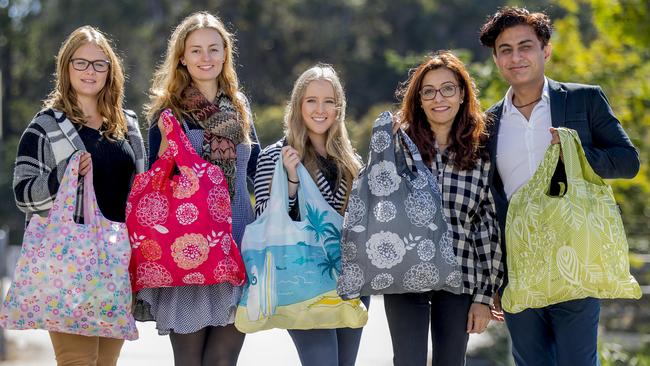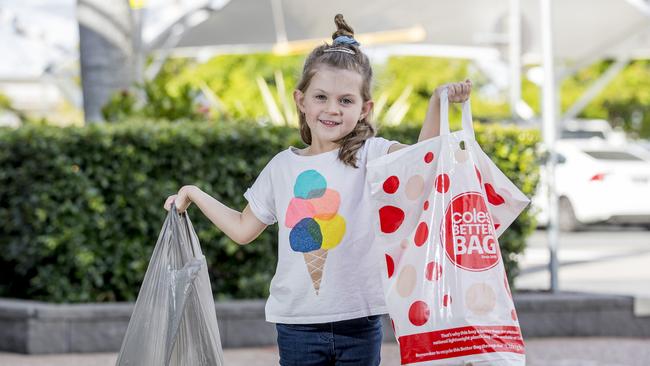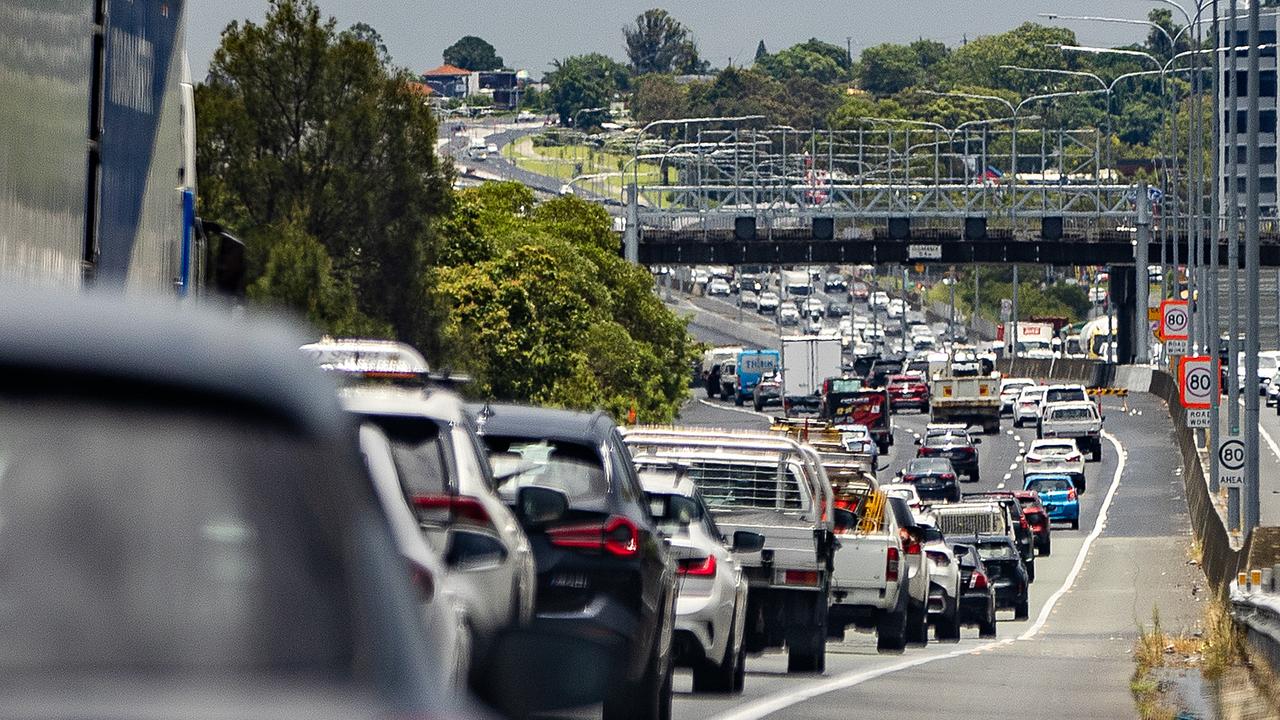Ultimate survival guide for the plastic bag ban
STILL confused about the plastic bag ban? Forgetting your bags or wondering which eco-friendly tote is your best bet? Don’t worry, with these tips you’ll soon have it in the (reusable) bag.

Local
Don't miss out on the headlines from Local. Followed categories will be added to My News.
NEARLY a month into the plastic bag ban and shoppers are still grappling with the change to their grocery run, but an eco-bag expert has shared her tips for supermarket success.
Earlier this month, Coles admitted customers were still short of bags at the checkout as Woolies’ customers complained their 15c plastic bags kept breaking.
So, if you’re still struggling to remember to take your reusable bags, or not sure which ones are the best buy, here is your ultimate survival guide.
B4C Boomerang Bags co-ordinator Gen Robey makes reusable bags for the community and has shared her tips on how to make the most of the bringing your own bags renaissance.
First, she says the key to keeping bags at the ready is not a prodigious memory or impeccable organisation.
It’s volume.
“You need to have them in as many places as possible,” she said.
She says to keep them in your handbag, work bag, briefcase and backpack, your bicycle basket or car boot, hang them on the back of the door or stash them in your desk drawer at work.
Ms Robey cautioned that not all bags were fit for every job: they need to be strong enough to carry what you want to put in them, and the right size for where you want to keep them.
It’s also worth thinking about how the bags can be disposed of — can they be recycled, re-used or will they go to landfill when you’re done with them?
Ms Robey hopes now that remembering reusable bags is a necessity rather than just a virtuous option, we’ll re-establish the habits of our grandparents’ and great-grandparents’ generations.
“It will just be what you do,” she said.

‘Heavy duty’ plastic bags
Woolworths, Coles, and Aldi all stock these heavy plastic bags for sale, they have to be more than 35 microns thick. Woolies and Coles make them from “80 per cent recycled plastic”.
Cost: 15c
Pros: Ms Robey said it was good to put a price on plastic, because it has a huge environmental cost.
Cons: But these bags are still plastic. “It’s something that’s going to be on the earth forever”. There have also been reports that these bags are not strong and break easily.
Disposal: Can be recycled through REDCycle program.
‘Green’ bags
These bags feel like fabric but are made from plastics like polypropylene and LDPE/LLDPE. Again, all of the majors and IGA have a version of this bag. Woolies guarantees that they will replace their version, the ‘Bag for Good’, if it gets damaged and recycle the old one.
Cost: $1
Pros: Ms Robey said: “Those green bags are fantastic because they’re using recycled materials.”
Cons: Although Ms Robey said the bags were being made better than they used to be, these bags can break and split, and will shred if they are put through the washing machine. They’re not easy to clean.
Disposal: Can be recycled through the REDCycle program.
*A note on CHILLER BAGS: These can be used to keep food cold but, unlike the green bags, they cannot be recycled through the REDCycle program or in your yellow top bin.
Boomerang Bags and cloth bags
B4C Boomerang Bags volunteers sew bags out of second-hand fabrics, saving them from landfill, while passing on sewing skills and strengthening communities. Some of the supermarkets, plus a range of eco-brands, also sell cloth bags.
Cost: $1-$10 or higher, depending on the maker. B4C Boomerang Bags are $4.
Pros: Ms Robey says B4C Boomerang Bags volunteers make sure the bags are durable, with strong straps. They can be machine-washed and personalised and come in different sizes. “We’ve had wildlife-themed material sewn onto the bags, or Bananas in Pyjamas — people get quite attached to their bags,” she said.
Cons: They can be more expensive and of varying quality, depending on the maker.
Disposal: Cotton and other natural fabrics can be composted at the end of their life.
Foldable bags
Made out of nylon, other synthetic fabrics, or lightweight natural fabrics, these can be folded, rolled or scrunched very small. They often have pouches, or are secured with a tie or elastic.
Cost: 99c to $6 each, on average, depending on the maker.
Pros: Ms Robey says these bags can fold up small to fit into handbags and work bags for impromptu shops. They are also durable. “They might sometimes be a plastic-based bag but … it’s still a really good option. For people who might do spontaneous shopping or who are forgetful, they’re really good.”
Cons: Depending on the materials, may be difficult to recycle or compost. Not ideal for heavy items.
Disposal: Synthetic bags cannot be recycled through the yellow-top bins or REDCycle. The best option would be repurposing them. Natural cloth bags can be composted.
Jute and hessian bags
Some supermarkets sell jute and hessian bags, as do Boomerang Bags and many eco-brands. Brisbane-based retailer Biome sells a large range.
Cost: $3 and up, depending on the maker
Pros: Ms Robey says hessian bags are strong and great for heavy groceries such as tins and jars. ”I’ve always got that in the back of in my car,” she said.
Cons: Hessian and jute bags can be more bulky and expensive than other options.
Disposal: Can be re-used or composted at the end of its life.
String and produce bags
Single-use produce bags are still available at supermarkets but many eco-brands are making reusable produce bags from recycled plastic bottles as well as traditional string bags. So be ahead of the curve!
Cost: Packs of five available from around $15.95, with costs varying depending on the brand.
Pros: Reduce your plastic use even further. The bags are usually small and easy to keep with you. Plus string bags come in many sizes and can double as grocery bags.
Cons: If you are using string bags, be mindful of how big the holes are and careful of small items.
Disposal: The bags made out of recycled plastic bottles can go back into the recycling stream, while string bags made out of natural fibres can be composted.


